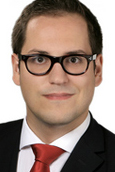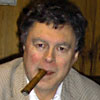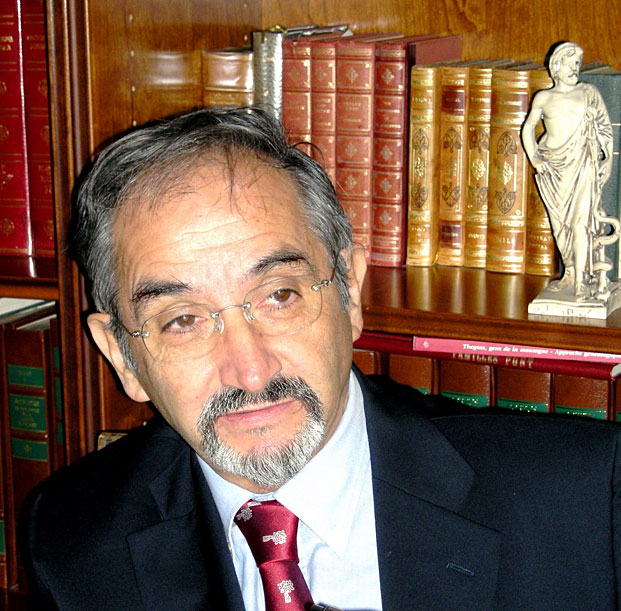Frederik Cyrus Roeder

Frederik Roeder is a German health economist. He studied hospital management, health economics and international business at the universities of Goettingen (Germany), Bayreuth (Germany), Maribor (Slovenia), and Tongji Shanghai (China). He has worked as a Visiting Professor for Health Economics at the Lithuanian University of Health Sciences and as a Visiting Professor for Healthcare Management and Economics at Ilia State University (Georgia). Fred Roeder is the Managing Director of Healthcare Solutions, a service focused on know-how transfer and policy advise for healthcare systems in transition.
Michael Schlander
Professor Michael Schlander MD, PhD, MBA is a health economist at the University of Heidelberg and a professor of health care and innovation management at the University of Applied Economic Sciences, Ludwigshafen. He is the founder and scientific director of the Institute for Innovation and Valuation in Health Care (Inno Val HC) a not for profit institute based in Eschborn, Germany. Professor Schlander who is also a physician has written ground-breaking studies on the role and limits of current evaluation methodology in adminstrative assessments of medical innovation.
Nicoleta Acatrinei
Graduate in economics and in theology, Nicoleta is currently preparing a PhD at the Swiss Federal Polytechnicum (ETH) in Zurich. She has spoken and written on topics related to ethics, economy and theology in Switzerland, China, Denmark and others. She is the author of "St Jean Chrysostome et l'Homo Oeconomicus" a scholarly work that explores the theological roots of market ethics. She has joined Medicine & Liberty in 2009 as our research fellow in charge of Ethics in Economics.
Francis Thevoz
Dr Francis Thevoz is a Cardiovascular surgeon by training. Past-president of the Société Vaudoise de Médecine he is also a former councilor of the City of Lausanne where he served as Director of finances. He is currently a member of the finance commision of the city's parliament. Francis will notably participate in the development of MedLib's, Privamed-Pro project.
Sophie Crespo
Sophie Crespo MD, our special projects & editorial consultant based in Geneva, graduated from Basel University Medical School. She holds specialist titles in intern al medicine and anesthesiology.
Contact: sophiecrespomd@medlib.ch
Fabienne Gay-Crosier
Dr Fabienne Gay-Crosier, joined MedLib's Medical Advisory Council in 2014. She is past president of the professional policy commisssion at the Swiss Society of Clinical Allergology and Immunology and is a firm advocate of professional independence for physicians. Author of "Geneva's White Paper on Allergy" Fillon Impr. Oct. 2015.
Loredana D'Amato Sizonenko MD
Dr D'Amato Sizonenko is a geneticist specialized in rare diseases. She is presently Coordinator for Switzerland of Orphanet, an international database of information on rare diseases and orphan drugs for all publics, designed to contribute to the improvement of the diagnosis, care and treatment of patients with rare diseases.
Martín Krause
Martin Krause is the diirector of the Centro de Investigations de instituciones y Mercados de Argentina: professor of Economics at the University of Buenos Aires.
Philip Stevens
Philip Stevens, Director of Policy at International Policy Network, London is the author of numerous health policy publications, including Fighting the diseases of Poverty (2007), Free trade for better health (2006) and The 10/90 Gap and the diseases of poverty (2004). He has also held research positions at the Adam Smith Institute and Reform in London and holds degrees from the London School of Economics and Durham University.
Shahnaz Radjy
After graduating in Biology at UPenn in Philadelphia, Ms Shahnaz Radjy was active in humanitarian action in Bolivian hospitals, and founded an A-TIC internet venture in Bolivia. She has also organized events for the International Labor Organization in Geneva and worked for the Davos World Economic Forum. Shahnaz is now based in NY and works as senior communications specialist for Vitality.
Bart Madden
Bartley Madden is an independent researcher who has developed "Dual Tracking": a fast lane for access to experimetal medicines, that also introduces an open database on new therapies. Bart Maddens concept is supported by Vernon Smith, Nobel prize in economics 2002 and by other reputed US economists. He has authored a monograph: "Dual Tracking, More Choices Better Health" edited by the Heartland Institute, Chicago.
Stefan Metzeler
Graduate from the Ecole Polytechnique Fédéerale de Lausanne (EPFL). Information and technology specialist, owner at Amadeus IT solutions. Swiss representative fo the International Society for Individual Liberty ISIL.
Contact: smetzeler@medlib.ch
Pierre Bessard
Executive Director of the Institut Constant de Rebecque, Lausanne, and President of the Liberales Institut, Zurich
Henri Siegenthaler
President of the Swiss Society for the Independence of medicine and editor in chief of « Der Arzt und sein Patient / Le Médecin et son Patient » Journal. Author of "Serons nous tous euthanasiés?" Ed.Cabedita (2015).
Pierre Lemieux

Professor of economics at the University of Québec in Outaouais. Author of "Le Droit de porter des armes"(1993), "Comprendre l'économie (2008) and other works such as "Public Health Insurance under a Non Benevolent State". Editor of Liberty in Canada online tribune.
Georges Lane
Georges Lane is a Professor of economics at the University of Paris-Dauphine where he teaches insurance economics.
Philip Stevens
Philip Stevens, Director of Policy
Philip is the author of numerous health policy publications, including Fighting the diseases of Poverty (2007), Free trade for better health (2006) and The 10/90 Gap and the diseases of poverty (2004). His writings on health policy have appeared in a wide range of international newspapers. Philip has also held research positions at the Adam Smith Institute and Reform in London, and spent several years as a management consultant. He holds degrees from the London School of Economics and Durham University.
Ernest Truffer
Swiss ENT surgeon and medical philosopher. One of the founding members of IATROS, a world organization of private and independent physicians. Writes regularly on medical ethics and other issues in various medical journals and in his blog.
Ernest unfortunately passed away on March 11th, 2015 and wil be deeply regretted by all those who knew him. The founding principles of Medicine and Liberty were strongly influenced by his profound understanding of the medical mission and his uncompromising attachment to Hippocratic ethics.
Gabriel Calzada
Professor of economics at the Universidad Rey Juan Carlos, Madrid. Founder of Medicina en Libertad (MedLib.es) and of Madrid's Instituto Juan de Mariana.
Gabriel is president of Francisco Marroquin University in Guatemala and member of the presidential board of the prestigious Mont Pelerin Society
Victoria Curzon Price
Professor of economics at the University of Geneva. President of Institut Constant de Rebecque, Lausanne. Member of Geneva Parlliament. Past president of the Mont Pelerin Society.
Rudolf Mayer
A practicing Opthalmologist in Lausanne. Active in Swiss medical professional politics he is a staunch defender of medical autonomy. He is on the editorial board of the Swiss medical journal "Arzt un Patient" (Physician and Patient)
Alphonse Crespo
Alphonse Crespo founder and executive director of Medicine and Liberty. Swiss orthopedic surgeon, author of Esculape Foudroyé (Les Belles Lettres 1991), ISBN 2-251-39008-1 and of numerous essays and articles such as Black Market Medicine an Ethical alternative to State Control, Outlawing Medicine or The End of Welfare and its effect on the Poor. President of the Cercle de philosophie politique Benjamin Constant at the Institut Libéral a Swiss think tank founded in 1979. Also conducts Med-Consilium a Swiss accident insurance consulting & assessment independent service.
Serban Sichitiu
Reputed paediatrician practicing in Lausanne. He was one of the founders of Switzerland's Patient and Physician Union active in the defense of patient and phyisician rights and liberties.
Medicine & Liberty
Sentier de la Tour-Carrée 9
CH-1800 Vevey - Switzerland
Tel & fax: 41 21 922 60 82
info@medlib.ch
Physicians and Authoritarianism in History
This text is exerpted from a paper to be published in "The Hazards of Harassing Doctors : Regulation and Reaction in transatlantic healthcare" © CMPI, NY 2008
"The fate of individuals who choose to devote themselves to the art of healing has varied greatly in the course of history. Some healers became saints or icons; others were burnt at the stake. The status of physicians in society intimately reflects perceptions and beliefs related to illness and disease at given times and places. The institutional architecture and social or legal frameworks produced by dominant creeds or ideologies also impinge on the outcome of their endeavours as healers. In his first aphorism, Hippocrates, the "father of medicine" overtly acknowledged this influence of "external circumstances" on successes or failures of the art.
The professed objectives of doctors, the knowledge that they are perceived as holding or that they duly acquire, compounded by the strong emotional impact of suffering and disease has naturally tended to put them in position of authority. Their power has seldom found itself in open conflict with that of rulers. The might inherent to medicine and that wielded by kings or presidents do not operate at the same levels and are of a different nature. Physicians however, have had to contend or to compromise with existing societal power structures often at the expense of the essence of their trade. The tragic history of totalitarianism in 20th century Europe shows how indiscriminate allegiance to state authority or to reigning ideologies can easily pervert medical power.
At the dawn of medicine, the power of primitive healers emerged from magic, superstition or religion. It seldom strayed far from that of kings or rulers who invariably draw their legitimacy from the same sources." In ancient Mesopotamia, all strata of society were ultimately subjected to the rule of the king. Certain categories of healers enjoyed the status of priests. Religious privileges partly shielded them from the monarch's authority. Others: in particular the street surgeons were answerable to arbitrary laws and decrees. The Hammurabi Code established fees for given procedures. It also set sentences for unsuccessful treatments; compensation was based on the eye for an eye principle with some exceptions: a doctor’s eye had less value than a nobleman’s tooth, while a doctor’s finger was worth more than a slave’s life. This heavily authoritarian environment produced little progress in the art of healing. Ailing Babylonians took to the custom described by Herodotus of shunning healers and exposing their ailments on the marketplace hoping that some passer-by who may once have suffered from the same symptoms might stop and give advice.
The scientific foundations and the ethical principles that have guided and enlightened medical progress throughout its history can be traced back to Ancient Greece. They were the product of a society that combined great intellectual liberty, a deep respect for reason and a strong marketplace. Greek physicians contracted directly with patients in an extremely competitive environment. They had to rely on good prognosis and on reputation rather than on protection from the state or from the gods to earn their living. If one looks at the history of medicine to this date one can see significant advances whenever physicians have practiced their trade without intrusion of religious or secular authority. When they relinquish professional autonomy for whatever cause, physicians forsake responsibility with effects on their ethical commitment and on the progress of their art.
As from the 19th Century, physicians have had to cope with ideologies that attempted to empty medicine of its market essence. Bismarckian and Marxist concepts on the omnipotent, omniscient and omnipresent functions of the state captured the medical trade with lasting consequences. The effects of socialist dialectics on medical minds are felt to this day. Modern doctors are not at ease with the thought of patients as consumers or illness as a market even though this notion was self evident to their predecessors, starting with Hippocrates. They fail to grasp the mechanisms of exchange and contract in a free society or the functions of price and profit (a Marxist sin). This has made physicians vulnerable whenever their earnings have been questioned or attacked by those who wished to socialize and subdue their profession.
Before laws did the rest, the whiplashes that drove the medical profession out of the market were not altogether painful. Collectivist ideologues lured and lulled the mainstream of the profession into seemingly secure state protected cartels or state enforced monopolies. Subtle perks and short-lived privileges bought the submissiveness of doctors, though there were instances when the goading was less tactful. Aneurin Bevan's celebrated “I shall stuff their mouths with gold!” at the inception of the NHS, still rings loudly in the ears of older British physicians yet left to wonder where the gold went. Alternatively pressures bedeviling profit as incompatible with their altruistic mission, inhibited doctors from openly striving for high revenues.
By yielding on incomes, European physicians forfeited economic power and gradually lost their grip on their tools. Doctors can no longer afford to purchase some of the heavy hardware that goes in par with modern health technology, let alone to own and run hospitals. Property means control. In the best of cases, professionals are able to partner with business investors or charitable foundations for the acquisition and management of heavy technical equipment, surgical facilities or hospitals. In most instances however doctors have allowed these to fall into the hands of government and its subsidized proxies. The interests of patients rarely conflict with those of physicians. The same cannot be said of government planners and regulators. Healthcare is but one among many conflicting priorities that modern policy-makers choose to tackle.
February 17, 2008

 RSS feed
RSS feed